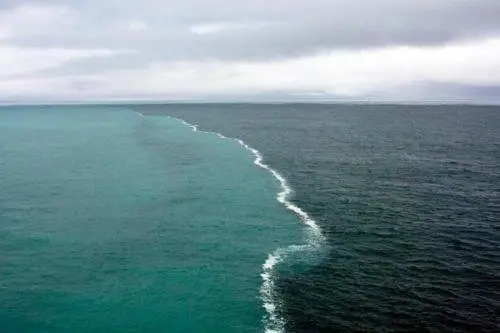

Atlantic Ocean
A recent research has indicated that the Atlantic Ocean’s circulation system is perilously close to a ‘devastating’ tipping point. This system, officially known as the Atlantic Meridional Overturning Circulation (AMOC), is a crucial regulator of the world’s climate, controlling heat distribution across the Northern and Southern Hemispheres. The study, conducted by an international team of climate scientists, underscores the potential for irreversible and catastrophic impacts on global weather patterns, sea levels, and ecosystems.
The AMOC is a large system of ocean currents, including the Gulf Stream, that transports warm water from the tropics northwards into the North Atlantic. This circulation is critical for maintaining the climate balance by moderating temperatures in Europe and North America. However, the research, published in a leading scientific journal, indicates that the AMOC is weakening at an alarming rate, primarily due to climate change-driven factors like the melting of Greenland’s ice sheet and increased freshwater input into the Atlantic.
The study’s findings suggest that if the AMOC crosses a critical threshold, it could lead to a significant slowdown or even a complete shutdown. Such a scenario would have dire consequences, including more extreme weather in the Northern Hemisphere, significant cooling in parts of Europe, rising sea levels on the Atlantic coast of the U.S., and dramatic impacts on marine ecosystems and biodiversity.
The researchers have called for immediate and decisive action to reduce greenhouse gas emissions and halt global warming. They emphasize that while the exact tipping point is uncertain, the trend is clear and the risk of crossing it increases with every ton of CO2 emitted into the atmosphere.
This groundbreaking study does make sense as there is already a growing body of evidence highlighting the urgent need for global cooperation in tackling climate change. It is also a reminder of the interconnectedness of our planet’s systems and the far-reaching consequences of their disruption. With the AMOC nearing a potentially devastating threshold, the time for action is now, to prevent irreversible damage to our climate and ensure a sustainable future for generations to come. If the same situation persists, we can see some devastating natural calamities in our oceans
U.S. Secretary of State Marco Rubio has strongly denounced French President Emmanuel Macron’s plan to…
President Donald Trump’s administration has reached a $221 million settlement with Columbia University, resolving multiple…
Attorney General Pam Bondi informed President Donald J. Trump earlier this year that his name…
In a surprise move Tuesday, Speaker Mike Johnson announced that the House of Representatives would…
The Trump administration has released over 240,000 pages of long-sealed FBI surveillance records related to…
At least 73 Palestinians were killed and around 150 others injured by Israeli gunfire on…